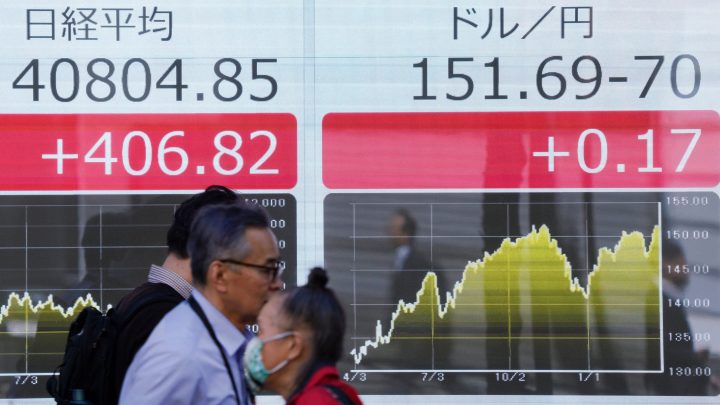
How a weak Japanese yen affects the U.S. economy

The Japanese yen dropped to its weakest level relative to the U.S. dollar in 34 years Wednesday morning. It’s more a currency situation than a currency crisis — Japanese finance officials are keeping a close eye.
The root cause of the currency situation: Until very recently, Japan’s central bank has kept interest rates low to spur growth. Meanwhile, American interest rates have shot up, which means Japanese investors want more U.S. dollars to get those higher rates.
When the third-largest economy in the world sees its currency decline, it’s going to have ripple effects on the American economy too.
When the yen falls relative to the dollar, Japanese exports become cheaper for American consumers — at least that’s the theory.
But if you’re waiting for those 2025 Toyota Camrys to come down from that $28,000 price tag, Brad Setser at the Council on Foreign Relations has some bad news for you.
“Japanese auto exports which should be much cheaper as a result of the weakening of the yen, there hasn’t been as strong a response as you might have expected,” he said.
That’s partly because over half of Japanese cars sold in the U.S. are actually made in the United States. And Japanese automakers have learned that keeping prices high is more profitable than flooding the American market with cheaper options.
But Setser said American consumers could see cheaper imports from elsewhere.
“The more the yen weakens, the more other currencies in Asia weaken,” he said.
Which should mean discount electronics from Korea or bargain textiles from China.
The flip side of a weakening yen? American exports to Japan become more expensive.
Our biggest export, liquified natural gas, shouldn’t really be impacted. But economist Takatoshi Ito at Columbia University said American agriculture could take a hit.
“Beef is big. And fruits, including oranges, are big. Pork is also big,” he said.
According to the Department of Commerce, Japan is the largest source of foreign direct investment in the U.S.
If the yen continues to slide, we may see fewer Toyota factories in Kentucky or Alabama in the future, said Joseph Gagnon at the Peterson Institute for International Economics
“A weak yen makes it more expensive for a Japanese company to open a factory in the U.S,” he said.
And by the same token, American companies may find it more enticing to open up shop in Japan.
There’s a lot happening in the world. Through it all, Marketplace is here for you.
You rely on Marketplace to break down the world’s events and tell you how it affects you in a fact-based, approachable way. We rely on your financial support to keep making that possible.
Your donation today powers the independent journalism that you rely on. For just $5/month, you can help sustain Marketplace so we can keep reporting on the things that matter to you.

















